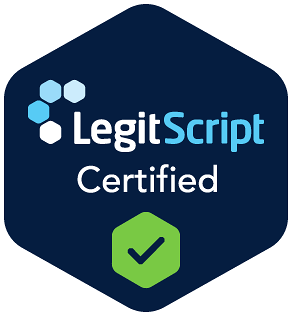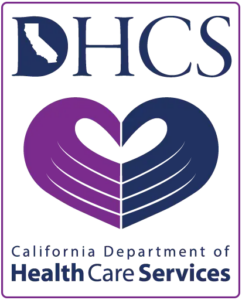Nearly 9.2 million adults in the United States live with both substance use disorders and mental health conditions simultaneously. This complex challenge requires specialized care that addresses both issues together.
At Surf City Detox, we understand that searching for “dual diagnosis treatment near me” reflects your need for comprehensive, integrated care. The right treatment approach can transform lives by tackling addiction and mental health disorders as interconnected conditions rather than separate problems.
What Makes Dual Diagnosis So Complex
Dual diagnosis occurs when someone experiences both a substance use disorder and a mental health condition at the same time. The Substance Abuse and Mental Health Services Administration reports that approximately 21.5 million adults in the United States struggle with co-occurring mental health and substance use disorders each year. This represents roughly 50% of individuals with substance use disorders, which makes dual diagnosis far more common than many people realize.
The Most Dangerous Combinations
Depression paired with alcohol use disorder ranks as the most frequent dual diagnosis combination that treatment centers see. Post-traumatic stress disorder with opioid use disorder creates particularly challenging recovery scenarios, with trauma-exposed individuals experiencing significant rates of post-traumatic stress symptoms. Anxiety disorders affect about 18% of people with substance use problems (especially social anxiety combined with marijuana use). Bipolar disorder with substance use presents another high-risk pairing that affects approximately 20% of individuals with mood disorders.
Why Standard Treatment Falls Short
Traditional addiction treatment that ignores mental health symptoms fails 50% of dual diagnosis patients. The Cleveland Clinic data shows that symptoms overlap significantly, which makes accurate diagnosis difficult without specialized assessment protocols. Withdrawal symptoms can mask underlying mental health conditions, while untreated depression or anxiety often triggers relapse within months of completing addiction treatment.
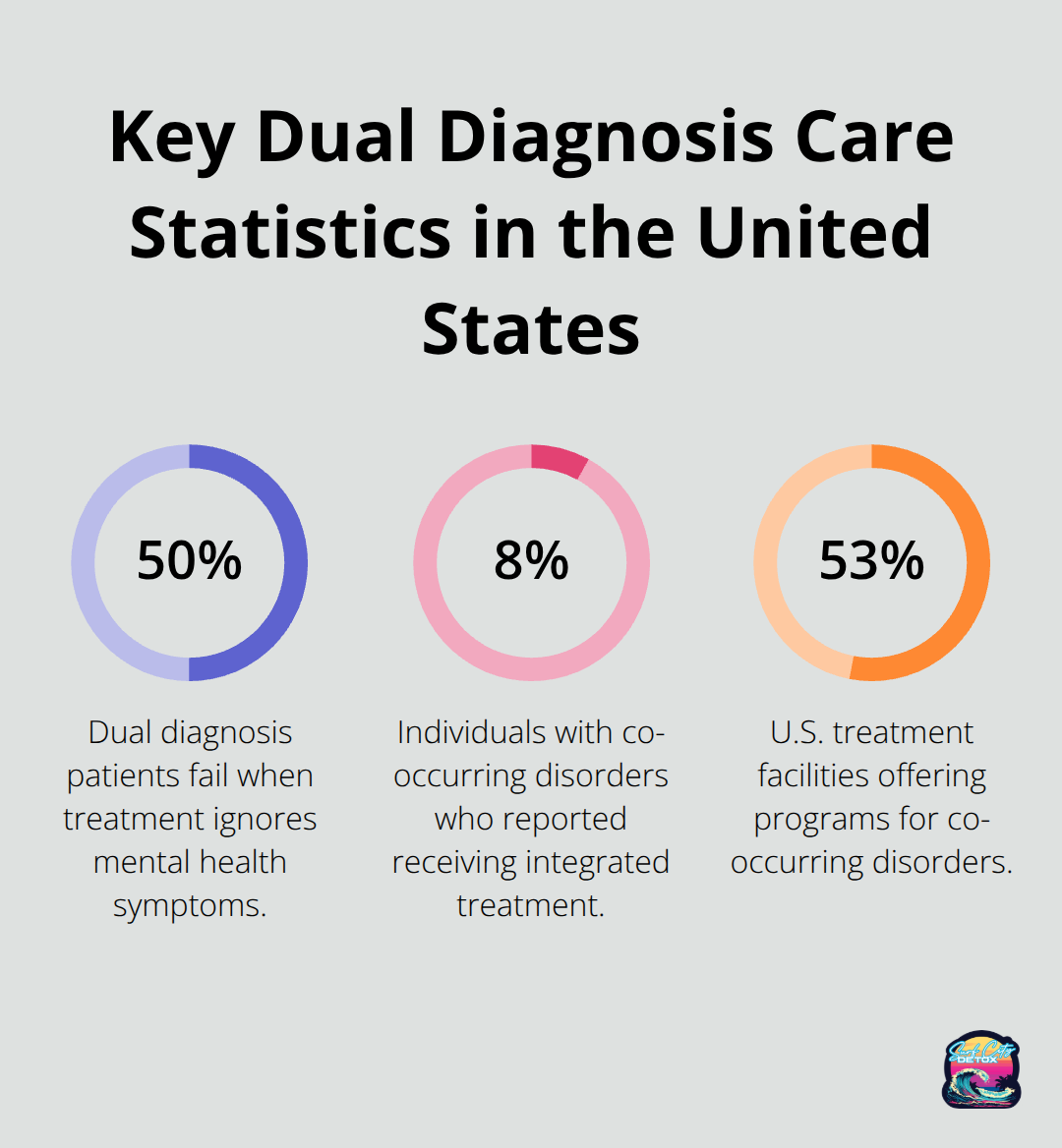
The Assessment Challenge
Healthcare providers must wait for a period of abstinence before they can distinguish between withdrawal symptoms and genuine mental health symptoms. Drug-induced brain changes can exacerbate symptoms of mental health disorders and increase the risk of developing them. This complex interaction between substances and mental health creates a diagnostic puzzle that requires specialized expertise to solve effectively.
The next step involves understanding how integrated treatment approaches address these interconnected challenges through evidence-based methods.
Evidence-Based Dual Diagnosis Treatment Approaches
The integrated treatment model represents the gold standard for dual diagnosis care, with studies showing that less than 8% of individuals with co-occurring disorders reported receiving integrated treatment. This method treats addiction and mental health disorders simultaneously rather than sequentially, which traditional programs often attempt unsuccessfully. Gateway Rehab research demonstrates that integrated care improves emotional stability and reduces distress that leads to relapse, while separate treatment of each condition creates gaps that undermine recovery progress.
Cognitive Behavioral Therapy Applications
Cognitive Behavioral Therapy proves most effective when applied to specific dual diagnosis combinations, particularly depression with alcohol use disorder and anxiety with substance abuse. The Weiss study from 2007 showed that patients receiving integrated group therapy would have fewer days of substance use and fewer weeks ill with bipolar disorder. CBT works by identifying thought patterns that fuel both mental health symptoms and substance cravings, then replaces them with healthier responses that clients can use in real-world situations.
Dialectical Behavior Therapy for Complex Cases
Dialectical Behavior Therapy excels in treating borderline personality disorder combined with substance abuse, teaching emotional regulation skills that prevent both self-harm and substance use triggers. DBT focuses on four core modules: mindfulness, distress tolerance, emotion regulation, and interpersonal effectiveness. These skills help clients manage intense emotions without turning to substances (which often serves as their primary coping mechanism). The structured approach provides concrete tools that clients practice daily until they become automatic responses.
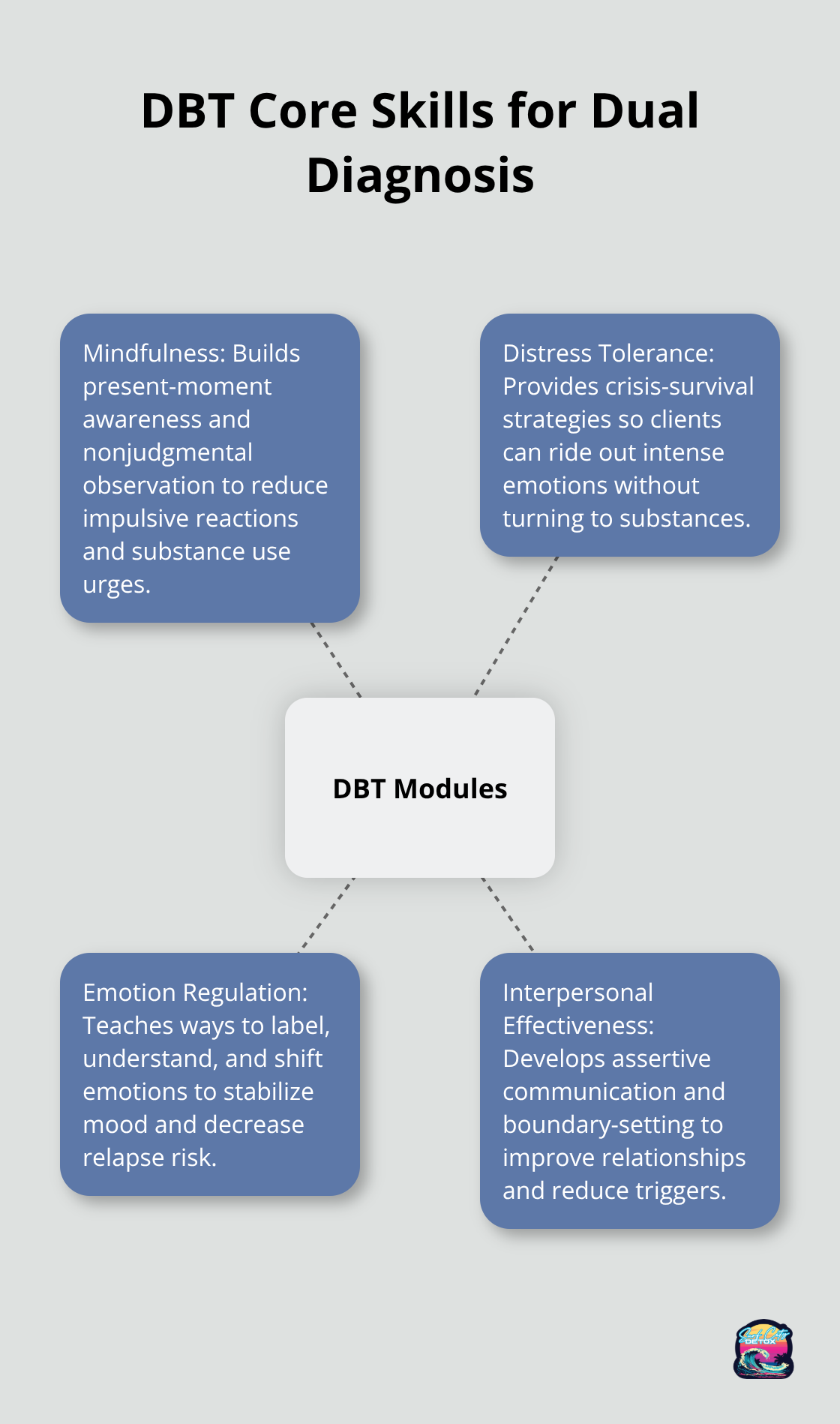
Medication-Assisted Treatment Coordination
Medication-assisted treatment for dual diagnosis requires careful coordination between psychiatric medications and addiction treatments. Mood stabilizers and antidepressants manage psychiatric symptoms while medications like naltrexone or buprenorphine address substance cravings without interference. The key lies in timing – psychiatric medications often need adjustment during early recovery as brain chemistry stabilizes from substance withdrawal.
Treatment centers must employ psychiatrists experienced in addiction medicine, as standard psychiatric care without addiction expertise fails to account for drug interactions and recovery-specific medication needs. These specialized providers understand how substances affect mental health medications and can adjust dosages appropriately throughout the recovery process.
With these evidence-based approaches established, the next step involves finding treatment centers that actually implement these methods effectively rather than simply claiming they do.
Finding Quality Dual Diagnosis Treatment Centers
The Joint Commission accreditation represents the gold standard for dual diagnosis treatment centers, yet only 53% of treatment facilities in the United States offer programs for people with co-occurring disorders. Look for facilities licensed by your state’s Department of Health Care Services and accredited by organizations like CARF International or The Joint Commission. These credentials indicate that the center meets strict standards for clinical care, safety protocols, and staff qualifications. Avoid facilities that lack proper licensure or rely solely on peer counselors without licensed clinicians who have experience in both addiction medicine and psychiatry.
Key Credentials That Matter Most
State health department licensure provides the foundation for legitimate treatment operations, while national accreditations add layers of quality assurance. The Joint Commission reviews facilities every three years and requires continuous compliance with safety standards (including medication management and emergency protocols). CARF International focuses specifically on behavioral health outcomes and requires centers to demonstrate measurable treatment results. Check these credentials directly through official websites rather than trust facility marketing materials, as some centers display expired or invalid certifications.
Questions That Reveal Treatment Quality
Ask potential treatment centers specific questions that expose their actual capabilities rather than marketing claims. Request to speak with the medical director about their dual diagnosis protocols and staff-to-client ratios during treatment hours. Inquire about the average length of stay for dual diagnosis patients, as quality programs typically require 60-90 days minimum compared to 30-day programs that rush treatment.
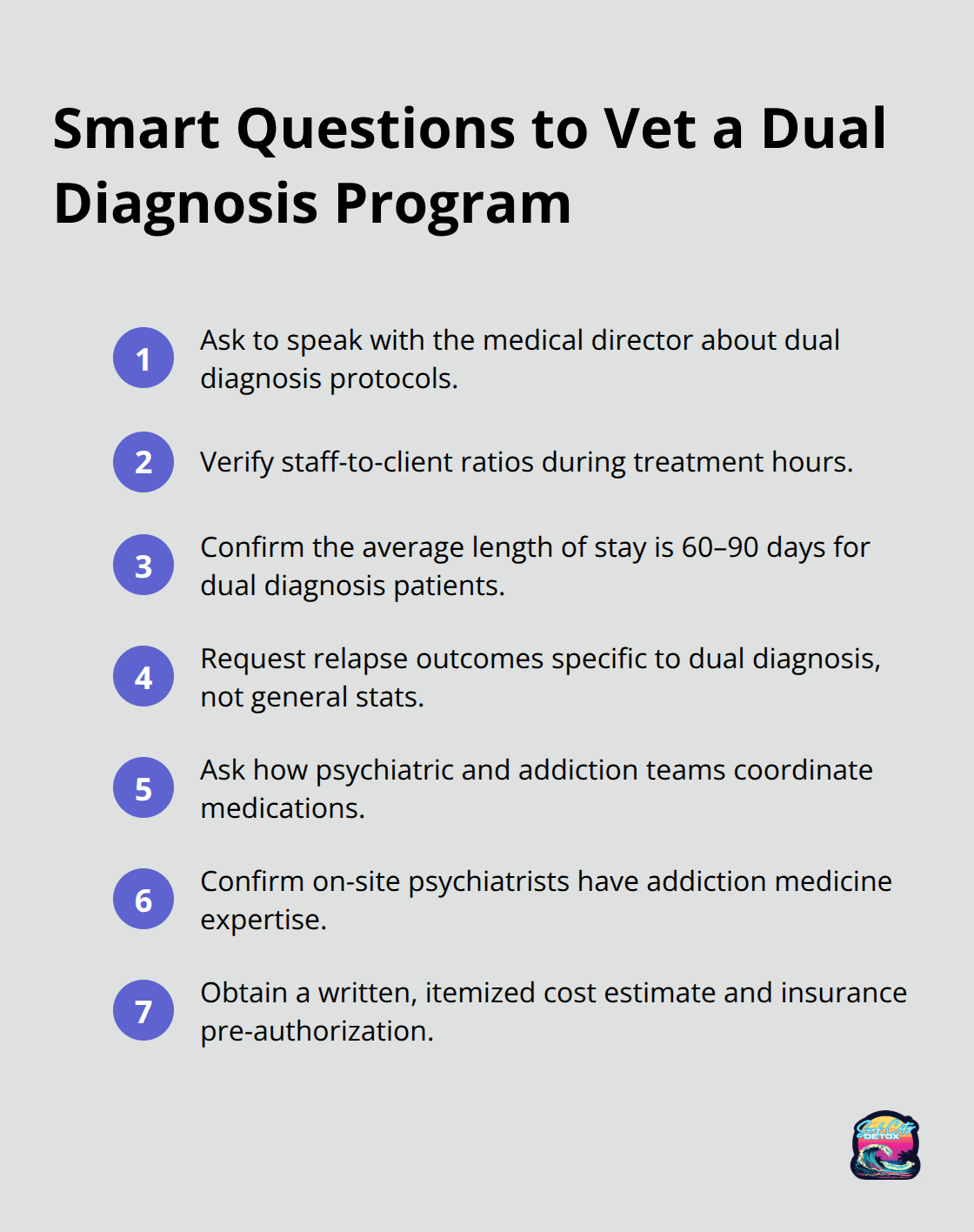
Demand concrete information about their relapse rates for dual diagnosis patients specifically, not general addiction statistics. Quality centers provide transparent answers and detailed treatment protocols, while inadequate facilities give vague responses or refuse to share outcome data.
Insurance Coverage Strategies That Work
The Affordable Care Act mandates that most insurance plans cover mental health and substance use disorders as essential benefits, yet many treatment centers create obstacles that increase out-of-pocket costs. Contact your insurance provider directly to verify dual diagnosis coverage limits and obtain pre-authorization before admission. Request itemized cost breakdowns from treatment centers and compare coverage for medical detox, residential care, and psychiatric services separately. Many facilities offer payment plans or financial assistance, but negotiate these terms before treatment begins rather than during care when you have less leverage.
Red Flags That Signal Poor Care
Facilities that promise quick fixes or guarantee specific outcomes should raise immediate concerns, as legitimate dual diagnosis treatment requires months of integrated care. Centers that separate addiction and mental health treatment into different programs fail to address the interconnected nature of co-occurring disorders. Avoid facilities with high staff turnover rates or those that cannot provide references from former clients (within privacy guidelines). Programs that focus primarily on detox without comprehensive residential treatment leave dual diagnosis patients vulnerable to relapse within weeks of discharge.
Final Thoughts
Dual diagnosis treatment transforms lives when professionals address addiction and mental health disorders as interconnected conditions that require simultaneous care. Statistics reveal that approximately 50% of individuals with dual diagnosis respond positively to combined treatment approaches, while those who receive fragmented care face significantly higher relapse rates. Recovery outcomes improve dramatically when both conditions receive integrated attention from qualified specialists.
Patients develop stronger coping mechanisms, experience better emotional stability, and maintain longer periods of sobriety compared to those who receive separate treatments for each condition. The search for “dual diagnosis treatment near me” represents a critical moment in your recovery journey that demands immediate action. Quality integrated care addresses both addiction and mental health together rather than treating them as separate problems.
We at Surf City Detox provide medically supervised detox, residential treatment, and comprehensive dual diagnosis care under one roof in our Huntington Beach facility. Our compassionate intake specialists verify insurance coverage and guide you through admission (making the process as smooth as possible). Contact Surf City Detox today to begin your integrated treatment journey toward lasting recovery and renewed purpose.

